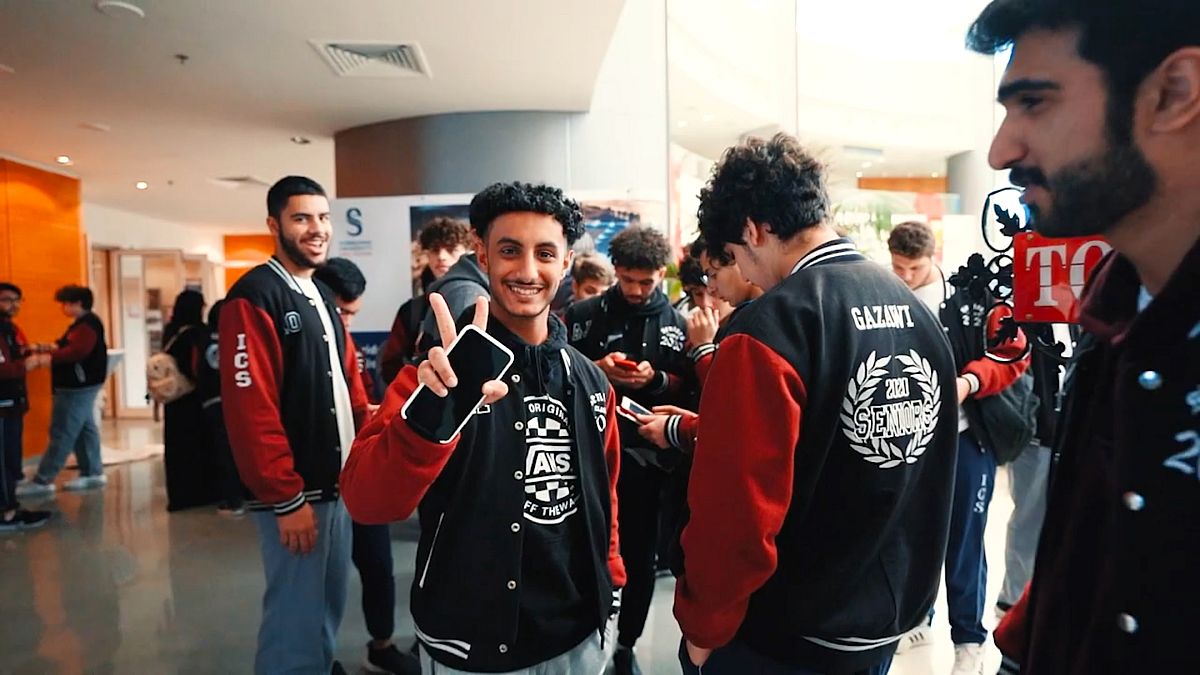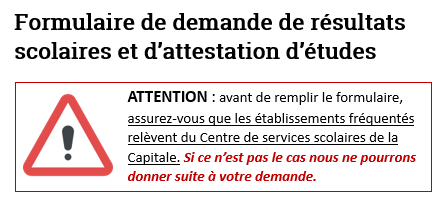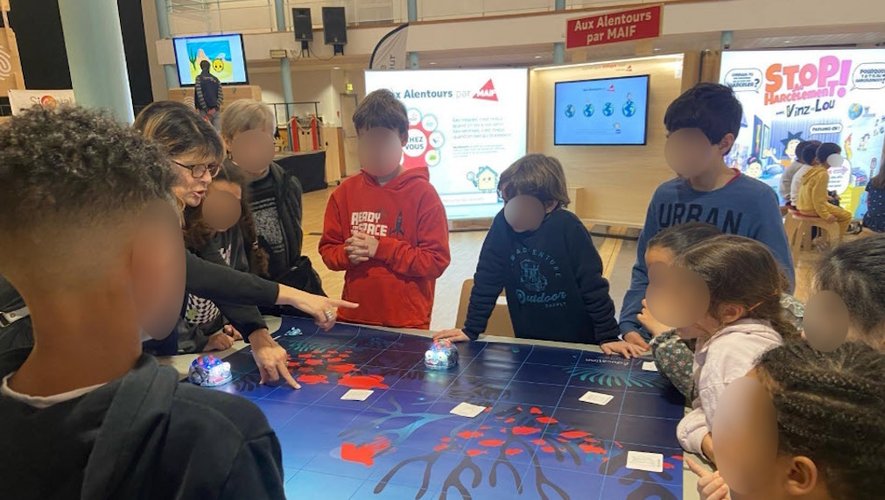This week, Inspire Middle East looks at recent developments in education in the Middle East and North Africa, including the massive shift to online teaching in recent months.
This week, Inspire Middle East looks at recent developments in education in the Middle East and North Africa, including the massive shift to online teaching in recent months.
 ADVERTISING
ADVERTISING
Due to the COVID-19 pandemic, many students around the world have been homeschooled. Some school children, like Christy, greatly appreciated this situation: “I can count on myself and do things on my own“, explains the little 7-year-old Lebanese girl.
But others have a less positive opinion, like the Egyptian Amina, 5 years old: “I miss my friends and my teacher because my teacher teaches me a lot about school“, or Sayf, 9 years old, who lives in the United Arab Emirates (UAE): “I don't really like virtual learning because I find classroom interaction very important.”
According to a World Bank report, these three young schoolchildren are among 103 million students in the Middle East and North Africa who have been out of school since the start of the COVID-19 pandemic.
According to this text, pandemics can have long-term consequences for education: Previous crises such as the Ebola epidemic (2013-2016) have shown that school closures can lead to “learning loss” as well as the potential decline in human capital employment opportunities for young students.
Lack of technological infrastructure
To counteract these harmful effects, governments in the region have tried to provide answers so that as many students as possible can continue their education. The Jordanian Ministry of Education has therefore developed an online portal and two television channels that offer courses on the main subjects of the school curriculum.
In the Zaatari refugee camp, the students adapted quickly, as 18-year-old Salim explains: “Nothing has changed except that today we watch classes on television.”
However, in countries such as Iraq and Libya, many schools had to end the school year early due to a lack of technical infrastructure for distance learning.
The Gulf States are fortunate to be better equipped to implement this type of education. In Kuwait, 11-year-old Fatema particularly enjoyed online learning. “Those who bother me can no longer do it. The teacher can hear them on Zoom. Or if they try to email me, I have the power to block their messages“ says the young girl.
Ramzi, 9 years old, lives in Saudi Arabia. Unlike Fatema, he doesn't like distance learning because his eyes hurt from looking at too many screens all day. But that's not the only reason:I really miss being able to play four corners or other recreational games with my friends. I'm all alone at home, I only have my Lego sets.”
According to Sinem Lamont, Ramzi's mother, learning to get along with others is an important lesson. For this former teacher, isolation can have long-term consequences: “Especially for my children, it is not a good idea to do virtual learning because children rely on interaction with other children. They need to be able to solve problems in real time.”
A hybrid system
In the UAE, many are wondering about the future of learning environments. Some had the idea of creating a hybrid system of virtual and physical classes.
iCademy Middle East was founded about 13 years ago. It is one of the few schools in the region that offers a majority of accredited online courses. More than 600 students are admitted each year and since COVID-19, many parents have become interested in this institution.
After experiencing harassment, Mira joined iCademy last year. According to her, the flexible modules and courses with support from teachers enable a great deal of independence and the acquisition of practical skills. “Online courses require you to have more confidence and work independently. You have to force yourself to learn” hints the teenager.
Ola Hijjawi, Mira’s mother and former teacher, also believes that her children are better prepared for the real world through virtual learning: “I don't feel like my children are going to school. It's like they already have a job, they write emails, they do their own projects” she enthuses.
While parents, students and teachers debate the pros and cons of virtual learning, for many this option remains the safest during a global pandemic. The future will show us whether this period will leave its mark on the future of educational methods.
Universities are also adapting
The impact of the global pandemic and lockdown is not only being felt at primary and secondary levels, but is also upending some universities in the Middle East.
The Emirates' online learning program, which has been in place since March, could continue in one form or another when the academic year resumes in August.
Several institutions, such as the Higher Colleges of Technology (HCT), established in 1988, could be affected. Almost 23,000 students visit the various locations in the Emirates, from Abu Dhabi to Fujairah. Last year, the organization launched “HCT 4.0,” a strategic plan to help students realize their career aspirations after college.
 ADVERTISING
ADVERTISING
Dr. Abdullatif Al Shamsi, CEO of HCT, told us more about this strategic plan and how universities have continued to operate during the pandemic.
Rebecca McLaughlin-Eastham, Euronews: Dr. Abdullatif, technology has changed education, be it positive or negative. How has your institution adapted?
Dr. Abdullatif Al Shamsi, CEO of HCT: We all know that Generation Z is more passionate and tech-savvy. Thus, the use of technology in our education system has been around for a long time. This has made the changes due to COVID-19 and lockdown restrictions easier and more flexible. In collaboration with Blackboard International, we achieved E-Teacher certification and have been investing in this area for two years.
Given that technology is currently advancing much faster than education, what challenges does this pose to your field?
Dr. Abdullatif Al Shamsi: Absolutely yes, technology is constantly evolving, so it's not a fixed goal – it's an ever-changing goal and our faculty need to be interested in new technology trends every six months. COVID-19 has presented us as educators with a unique opportunity to advance what we advocate. In a sense, we use simulations, animations and applications more in the context of pedagogy and the delivery of instructions. And that’s exactly what makes learning more and more exciting for our students.
 ADVERTISING
ADVERTISING
How do you prepare students for a new world – not just a new world of work, but also a new social, economic and political landscape around the world? What is the best advice you could give them now?
Dr. Abdullatif Al Shamsi: A year ago we started a new concept that we call “Persona 4.0”. The type of graduate we are looking for consists of three elements: the digital persona, the professional persona and the entrepreneurial persona.
Entrepreneurship is what we are looking for in the post-Covid-19 era, entrepreneurial skills to create small and medium-sized businesses. We must ensure that our students acquire good skills and competencies so that they are able to run their own businesses. And the more we do that, the more wealth we create in the UAE economy, and I think that will make it more efficient. That's what we need: for our students to be better prepared.
No “radical renewal” at the Sorbonne Abu Dhabi
International academic institutions with a presence in the Middle East include Sorbonne University in Abu Dhabi, namesake of the world-famous institution's headquarters in Paris.
Founded in 2006, this institution has welcomed thousands of students from more than 90 nationalities across the arts, humanities and sciences.
According to Vice Chancellor Silvia Serrano, the organization has had to “adapt” to the COVID-19 crisis. However, it is not expected that there will be a radical overhaul of the university's curriculum or campus.
 ADVERTISING
ADVERTISING
Silvia Serrano, Vice-Chancellor of the Sorbonne in Abu Dhabi: I think this experience makes it clear that those who think we can move to 100% online courses will probably be very disappointed. Face-to-face teaching and interaction with the teacher are essential and without this personal contact we cannot provide good teaching.”
Rebecca McLaughlin-Eastham, Euronews: Why is personal interaction so important? Why is personal contact important? What happens if there is a second wave and we are forced to offer more online classes?
Silvia Serrano: The use of digital tools will continue, but the problem is that teaching and learning is a very comprehensive and complex process that is not only about providing and imparting knowledge, but also receiving it. But there is also a question of motivation; It is also important to attract students' attention and arouse their interest. It's not just about conveying information, but also about emotions. For example, how can you share emotions with students online? It's a big challenge.
As you look back at what has been called the “new era” of education in so many countries, what do you think will be the lasting legacy of this educational experience? What lasting changes will the pandemic leave behind?
Silvia Serrano: Doctoral students, sometimes master's students, often flew to the other side of the world to take part in a conference. And now the conferences are online and it works well at this level. On the other hand, high school students who were thinking about enrolling in universities abroad are now more likely to consider studying at a local university.
 ADVERTISING
ADVERTISING











